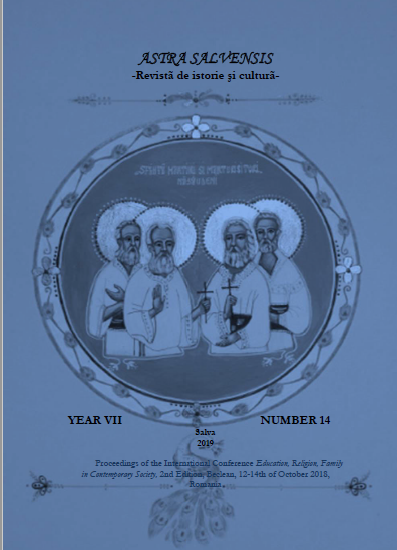Educational Counseling and Religious-Pastoral Psychotherapy in Prisons. Structural Guidelines for the Approach and Recuperative Intervention
Educational Counseling and Religious-Pastoral Psychotherapy in Prisons. Structural Guidelines for the Approach and Recuperative Intervention
Author(s): Teofil Tia, Ovidiu FeldioreanSubject(s): Theology and Religion, Religion and science , Sociology of Religion
Published by: Asociaţiunea Transilvană pentru Literatura Română şi Cultura Poporului Român - ASTRA
Keywords: christian counseling; chaplain priest; penitentiary; rehabilitation; moral education;
Summary/Abstract: On the foundation of Christian doctrine, Rumanian Orthodox Churchcreated an mainteined a living relationship with the prison environment for the moral and socialrehabilitation of inmates. Continuously adapting, the Church became receptive to the new challengesand sought to take on new responsabilities, including religious and moral counseling and education.The present paper, which is intended to be a guide for the chaplain priest today, exposes an in-depthanalysis of the psycho-spiritual processes involved in delinquent behavior; presents an informativematerial for the most commom psychopathologies specific to this space and proposes psycho-pastoralthechniques with a sanogenic role.The originality of this study is the use of materials specific to classical counseling andpsychotherapy in a pastoral context. Thus, attitudes such as unconditional acceptance, empathy,congruence, collaboration and abilities such as active listening, observation, feedback,summarization, etc. are scriptural justified and constitute the therapeutic reference frame. Christiancounseling and pastoral psychotherapy, with a role in reaffirming God's image in man, areconsistent with the theoretical foundations of two empirically susteined contemporary approaches:cognitive-behavioral theraoy and logotherapy. The common goal of building the relationship betweenpsychology and theology is „the new man"(Ephesians 4, 24), rehabilitated man, transformed bypersonal effort and free choice, both spiritually and cxognitively and behaviorally. The efficiency ofthe chaplain priest in his psycho-pastoral and educational interventions is conditioned by the correctappropriation and implementation of the theoretical elements, but also by the effort directed towardsachieving this change in his own person. The guide does not mean replacing the psychologist's workbut completing.
Journal: Astra Salvensis - revista de istorie si cultura
- Issue Year: VII/2019
- Issue No: 14
- Page Range: 155-171
- Page Count: 18
- Language: English

